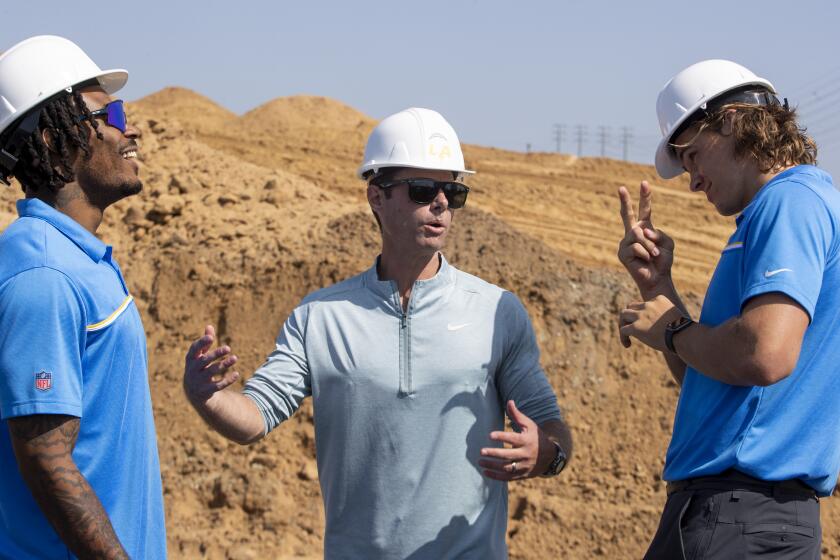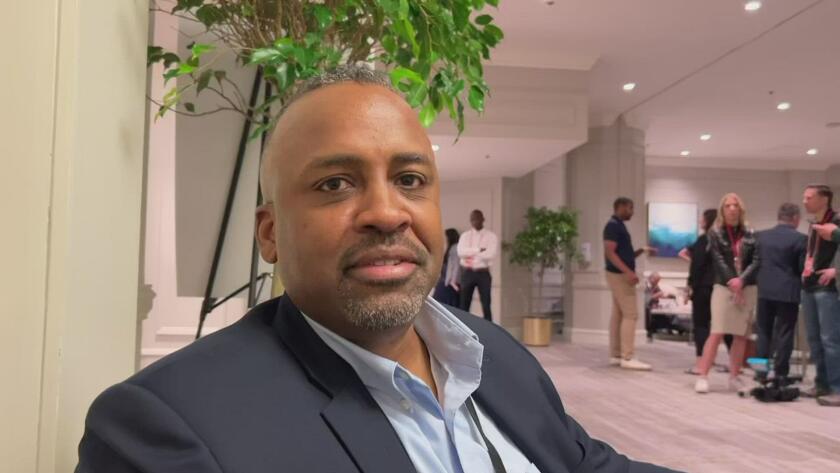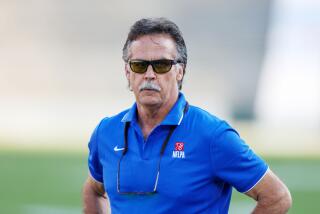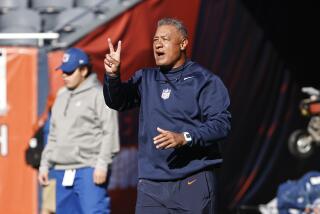NFL finally fostering opportunities to bolster diversity among leadership positions
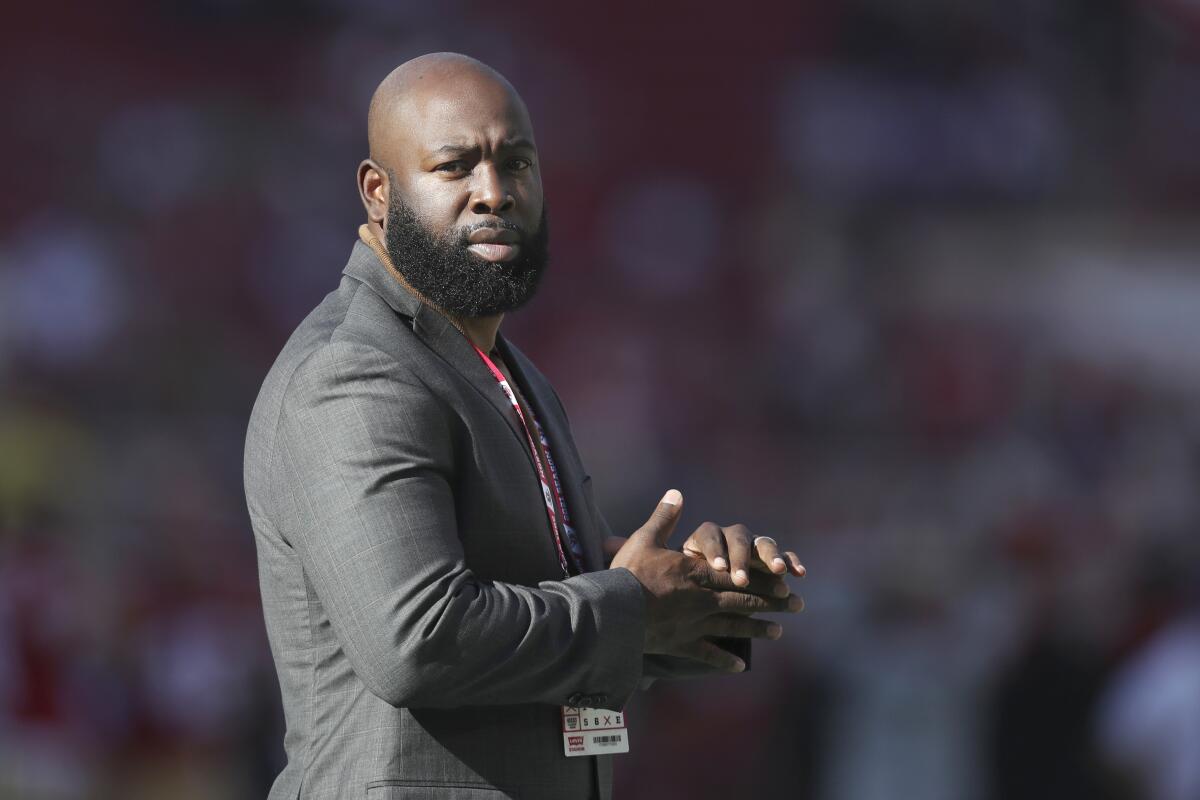
- Share via
ATLANTA — As an NFL running back — and the son of a legendary one — Ran Carthon learned from an early age how to scan a situation and squeeze through an opening.
Monday, a different kind of daylight.
Carthon, pro personnel director for the San Francisco 49ers, was among more than 60 participants in a first-time NFL program aimed at fostering opportunities for minority candidates who hope to lead franchises.
Chargers Chairman Dean Spanos asked new El Segundo neighbors, the Lakers, for some championship mojo as his team broke ground on new headquarters.
With a few exceptions, each NFL team sent an aspiring coach and general manager candidate to the league’s annual May meeting, creating opportunities for them to mingle in a more casual environment with club owners and people in charge of making hires.
The two-day event, deemed the “Coach and Front Office Accelerator,” is intended to provide senior women and minority prospects leadership development sessions with football operations experts and facilitators, as well as networking time with team owners. The effort is designed to continue building a diverse hiring pipeline.
It’s a relatively small step, but one that could help break barriers and further forge relationships among the future coaches and GMs.
- Share via
Jonathan Beane, NFL senior vice president of diversity, equity and inclusion, talks about what the league hopes to achieve for minority and female head-coaching and front-office candidates.
“The important part is to get in front of the owners and let them get to feel you as a person,” said Carthon, who had a brief NFL playing career and whose father is New York Giants great Maurice Carthon.
“Because our resumes, whether you’re a coach or a GM candidate, you can read about that. But you never really get to make the connection, specifically with our scouts, because we’re never on the field. There’s not a camera on us. We’re kind of behind the scenes making everything work.”
The NFL can’t tell team owners who to hire, but it is hoping that its coaching ranks become more diverse and reflective of its players, about 70% of whom are Black. Six of the 32 coaches are minorities, and three are Black: Pittsburgh’s Mike Tomlin, Houston’s Lovie Smith and Tampa Bay’s Todd Bowles, the latter two hired this year.
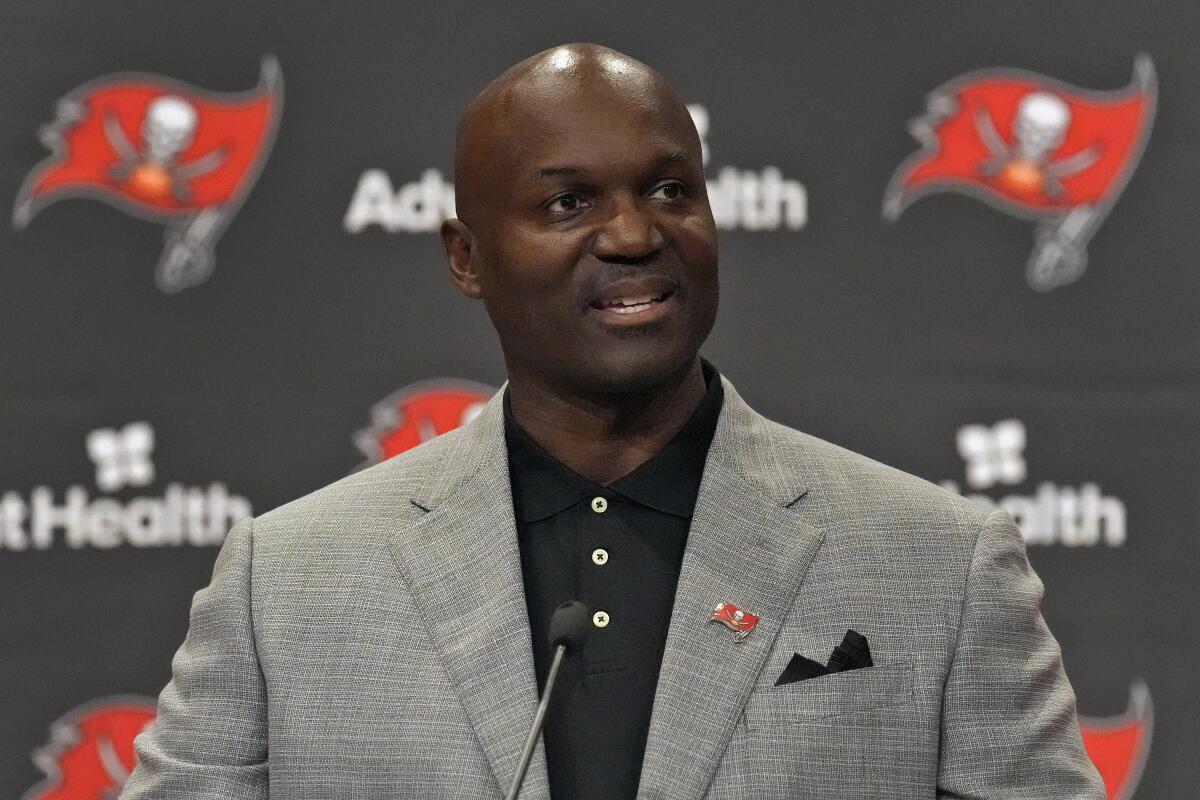
Seven GMs are Black, with five getting those jobs in the last two hiring cycles.
Ramping up the urgency for change, the NFL is being sued by fired Miami coach Brian Flores, who has alleged discrimination in the hiring practices of the Denver Broncos and New York Giants.
Typically, anti-tampering rules would bar coaches and executives under contract from having these types of conversations with other franchises, but the NFL set those aside for this event. From the league’s perspective, the conversations do not constitute interviews and the time spent may not be used to set up further interviews.
The Rams sent senior personnel executive Ray Farmer and tight ends coach Thomas Brown. Representing the Chargers were defensive coordinator Renaldo Hill and player personnel director JoJo Wooden.
The league has made other efforts over the years to create diversity initiatives and programs for minority candidates, but this is the first formal program involving all team owners.
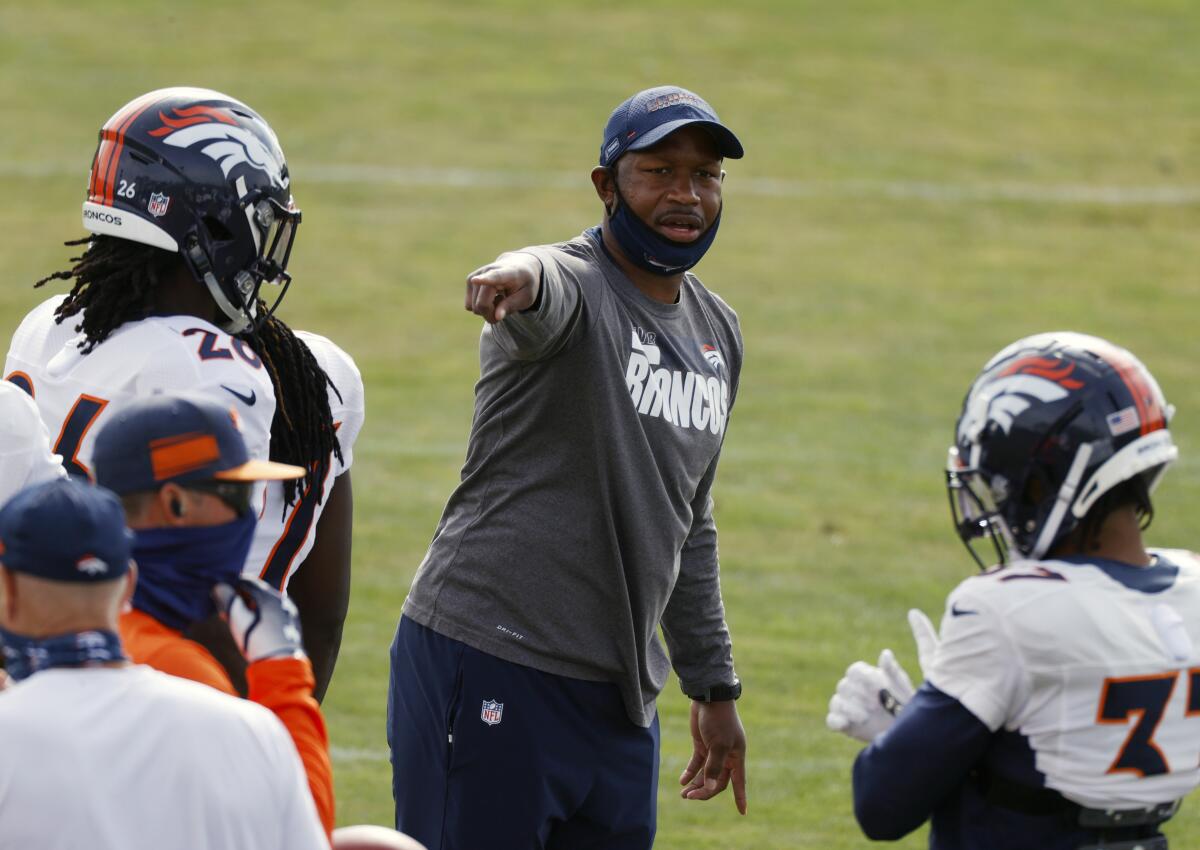
Among those who spoke to the candidates were commissioner Roger Goodell; owners Arthur Blank (Atlanta), Art Rooney II (Pittsburgh), Clark Hunt (Kansas City) and Robert Kraft (New England); Falcons president Rich McKay and GM Terry Fontenot, and Indianapolis coach Frank Reich.
A few teams did not send both a coaching and front-office representative. Minnesota, for instance, did not send a coach because the Vikings have a first-year staff and OTA workouts are under way.
Jonathan Beane, an NFL senior vice president in charge of diversity and inclusion, said the goal is not only to get candidates in front of owners, but also to give the potential coaches and GMs a more global glimpse of the entire operation.
“We want them to have a broader understanding of the business of football,” Beane said. “A lot of times you’re in your bubble, you’re focusing on being a great coach, but then what goes on in football operations? What about business operations both at a team and league level?
“Across the board we want to create this atmosphere of engagement where relationships are built among themselves and among the club owners and decision-makers where there’s a deeper understanding of how the league works.”
More to Read
Go beyond the scoreboard
Get the latest on L.A.'s teams in the daily Sports Report newsletter.
You may occasionally receive promotional content from the Los Angeles Times.

